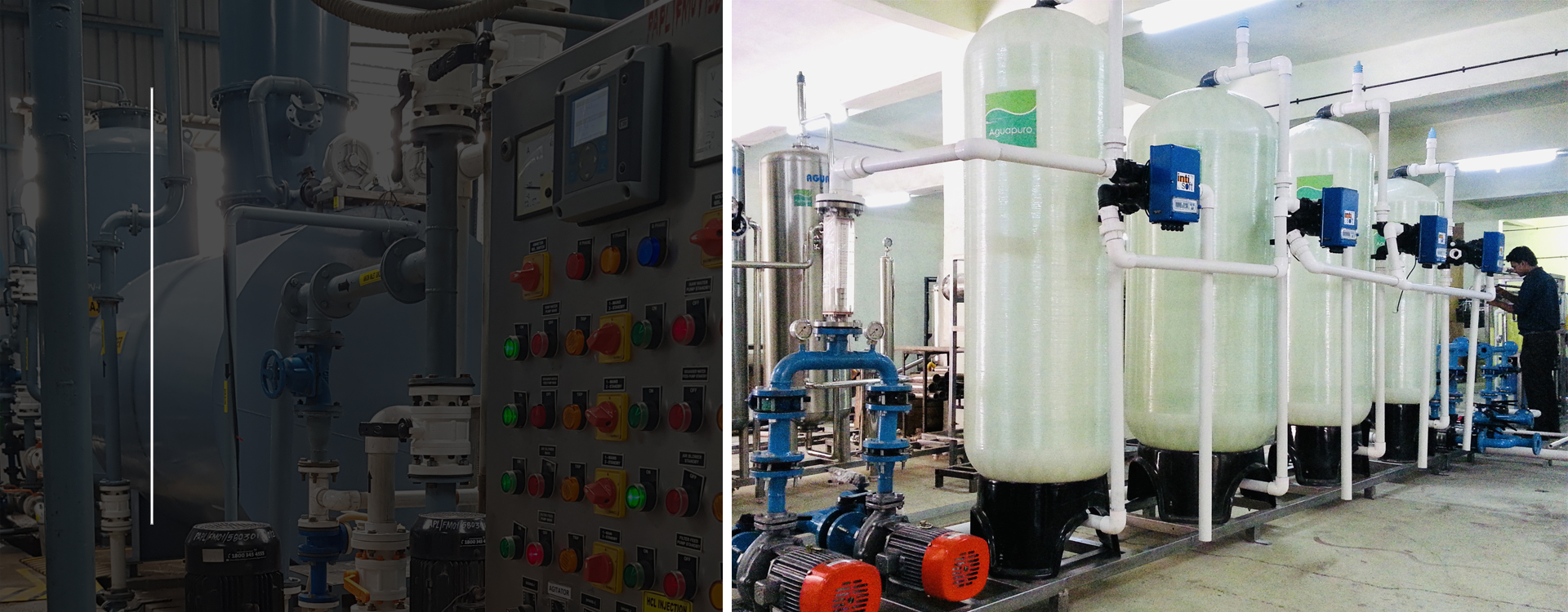
Water Treatment Plants
Demineralised Plants and
Mixed Bed Plants

Water Treatment Plants
Demineralised Plants and
Mixed Bed Plants
Demineralization is a process in which any salts (e.g., potassium, chlorine, magnesium) and ions (cations and anions) are removed from water to make it suitable for home or industrial purposes. Demineralized water reduces the corrosion rate. Demineralized water is also known as demi water.
Demineralization generally results in almost complete removal of minerals, and is thus typically reserved for applications requiring higher level of water purity, for almost every industrial usage, such as feed ormake up water for high pressure boilers, water for food and beverage industries, or process streams used in electronics manufacture, for example. For fresh water applications, demineralization can be a good alternative to distillation, as it is capable of producing water similar in quality to distilled water, but through a more cost-effective ion exchange process.
Mixed-bed exchangers offer a higher water quality compared to twin-bed systems. Mixed-bed ion exchangers hold a mixture of different IX resins housed within a single IX column. When a stream is introduced to the unit, the cation and anion exchange reactions take place simultaneously within the unit, which has the effect of addressing the sodium leakage issues that can compromise the quality of water produced by a twin-bed IX system. While mixed-bed exchangers produce higher quality water, they also require a more involved resin regeneration process. Additionally, mixed-bed units are more susceptible to resin fouling and/or inferior system function due to fluctuations in stream contents, and are therefore typically used downstream of other treatment measures.
Some of the features available on our systems include